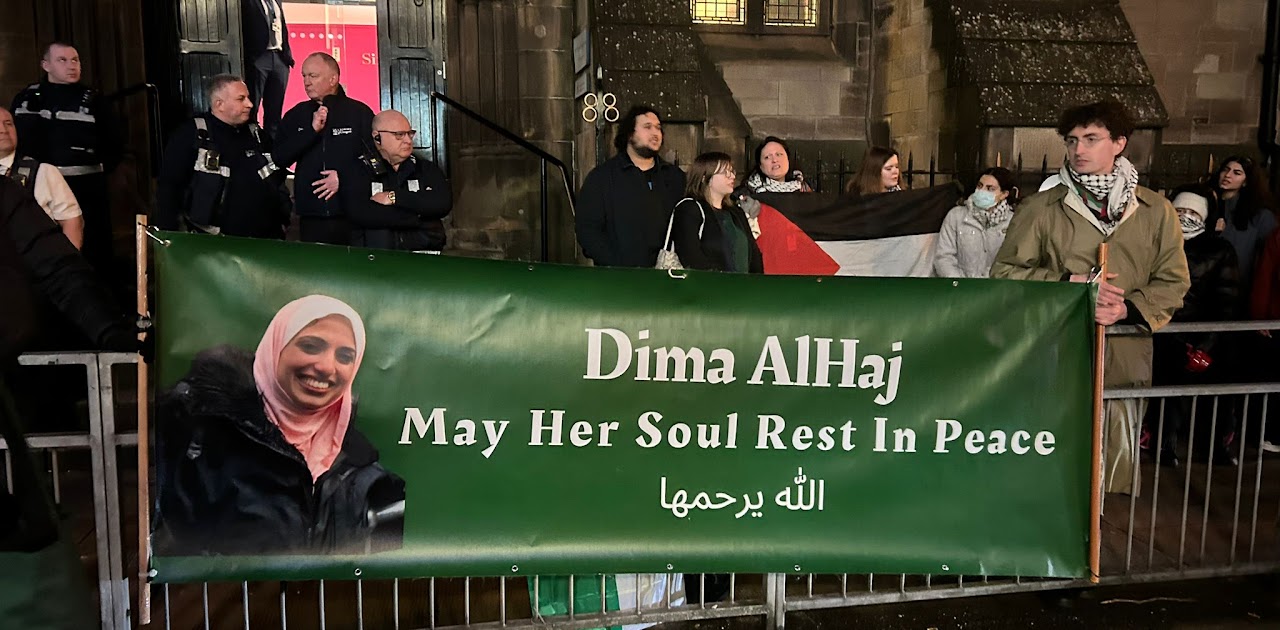The University of Glasgow has rejected 235 applicants for the Dima Alhaj Scholarship this year, with only two successful awards out of 237 applications. Records released under Freedom of Information (FOI) Act show that in 2024/25, the first year of the programme, there were 59 applicants and just one award made.
Hillhead Review believes that these applications all come from Palestinian nationals, as per the requirements of the scholarship, although the University has not released any information on unsuccessful applicants.
According to University records from November 2024, fewer than 15 students were listed as being from the Palestinian territories.
The scholarship was established in 2024 in memory of University alumna Dima Abdullatif Mohammed Alhaj, who was killed by an Israeli airstrike while working with the World Health Organization in Gaza in November 2023. It is open to Palestinian nationals who are living in, or have been forced to leave, the State of Palestine for humanitarian reasons. Applicants must have held a conditional firm or unconditional offer for full-time undergraduate or postgraduate study at Glasgow for 2025/26.
The scholarship was established in 2024 in memory of University alumna Dima Abdullatif Mohammed Alhaj, who was killed by an Israeli airstrike while working with the World Health Organization in Gaza in November 2023.
The award provides a full tuition fee waiver, £5,000 a year for living or study costs, and University accommodation. For the upcoming academic year, only two slots were available.
FOI documents show that selection is based on “career aspirations, financial need, [and] wider community impact.” The award is made to the “strongest application,” but the University acknowledges there is “no documented marking scheme.”
University officials point to other sources of support, including the Sanctuary Fund and the Humanitarian Response Fund. One Palestinian student, Ibrahim Alghorane, received support from the latter after being rejected from the Dima Alhaj Scholarship and sharing his story online. His tuition fees were waived by the University. Following an active campaign by students and staff, he was able to secure funding for accommodation and other vital expenses.
University officials point to other sources of support, including the Sanctuary Fund and the Humanitarian Response Fund.
The University’s Sanctuary Programme offers up to 30 Sanctuary Scholarships for undergraduate and postgraduate applicants seeking refuge in the UK. The Dima Alhaj Scholarship is listed as a separate award specifically for Palestinian nationals.
Despite these parallel schemes, demand for the Dima Alhaj award far exceeds availability. Applications have more than quadrupled since last year, yet only three scholarships have been granted in total.
Applications have more than quadrupled since last year, yet only three scholarships have been granted in total.
It is worth noting that the University has committed over £1 million to supporting Palestinian nationals, and states that they are helping a greater number of students than all of the other Scottish universities combined.
A University of Glasgow spokesperson said: “As a University of Sanctuary, we recognise the desperate situation for students in Gaza who have applied for UK universities, including Glasgow. We want to ensure that anyone with the drive, determination and desire to pursue a university degree is empowered to do so.
“The University currently offers a number of scholarships for Palestinian nationals and has recently committed to further funding to support conflict-affected applicants. We will continue to consider additional support for displaced students.
“This year we have committed more than £1million to supporting Palestinian nationals, through our new Humanitarian Response Fund – an initiative that reflects our commitment as a University of Sanctuary, and aims to ensure that students displaced by armed conflict are not denied access to education due to extraordinary hardship.
“We are supporting 29 students via the new fund, which is in addition to the Dima al Haj scholarships, Bseisu Foundation scholarships, and the Higher Education Scholarships for Palestinians (HESPAL) and Council for at Risk Academic (CARA) scholarships.
“We will continue to work alongside other institutions, cross-sector organisations and NGOs, such as CARA, to ensure that as a University we offer effective and meaningful support to those impacted by the ongoing conflicts in the Middle East, Ukraine and elsewhere around the world, whilst developing sustainable, long-term pathways to a Glasgow degree.”

Leave a Reply to * * * Apple just dropped it You could pick it up for free * * * hs=bd1fe155c59dcdd15a20a30d78e28f9d* ххх* Cancel reply